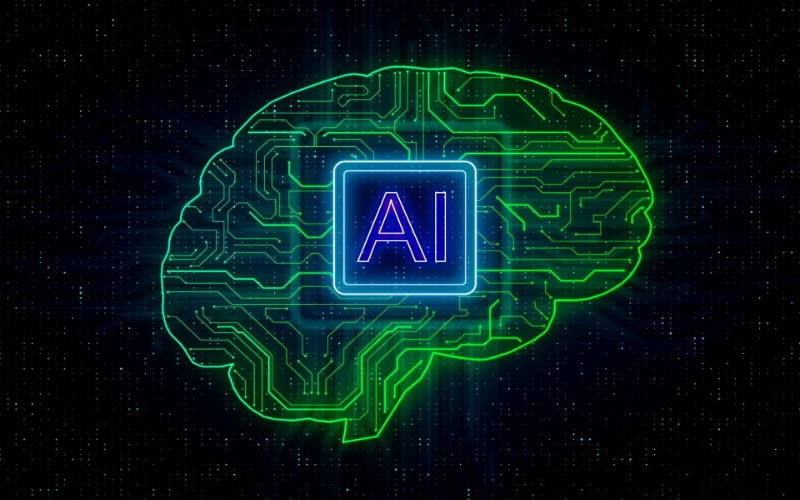
[ad_1]
As synthetic intelligence (AI) turns into extra ubiquitous, preliminary fears concerning the expertise are changed by a rising willingness to embrace its many advantages. Consequently, AI instruments are quickly reworking many features of enterprise at present. For instance, by automating all kinds of duties and offering deep insights via knowledge evaluation, AI enhances effectivity and permits organizations to perform extra in much less time.
Regardless of AI’s outstanding capabilities, there are nonetheless areas the place it can’t replicate human efficiency. It’s crucial for firms to acknowledge these limitations to allow them to construct an atmosphere that leverages AI’s strengths whereas capitalizing on human talents. This balanced method maximizes strengths, minimizes weaknesses, and propels companies to thrilling new ranges of effectivity and profitability.
The Revolutionary Energy of AI
Organizations have rapidly adopted AI and are reaping the various advantages promised by its creators. For example, the Computing Know-how Business Affiliation (CompTIA) studies that 56 p.c of companies use AI to enhance enterprise operations, and 46 p.c use it for buyer relationship administration. There’s little doubt that AI helps firms course of and analyze knowledge extra effectively, automate repetitive duties to scale back guide errors, and enhance productiveness by optimizing workflow. For instance, Fb makes use of AI expertise known as DeepText to raised perceive and make the most of the hundreds of posts submitted by customers each minute. Undertaking this manually would require numerous staff working limitless hours—one thing AI can obtain in seconds.
AI instruments have advanced from primary automation to stylish methods able to pure language processing, picture recognition, and predictive analytics. Along with DeepText, Fb makes use of an AI expertise known as DeepFace, which routinely identifies folks in a photograph shared on its platform. Consultants say the expertise surpasses human capacity at facial recognition. However whereas AI has vital constructive results in particular enterprise areas, it can’t exceed and even meet human efficiency in others.
What AI Can’t Do
Present iterations of AI instruments fall brief in three areas important to sustained enterprise success. These shortfalls are why it’s crucial for companies to create a piece atmosphere that balances AI utilization with human management. This collaborative atmosphere gives the muse crucial for better organizational success. Three key areas the place human abilities surpass AI’s capabilities embody:
- Worker growth. Whereas AI excels at offering customized studying paths, monitoring progress, and producing data-driven insights, it’s incapable of mentorship, a vital part of enterprise worker growth. Missing emotional intelligence, AI is unable to offer customized suggestions. If not compensated for with human interplay, these limitations can stunt private progress and creativity in a corporation, each of that are crucial for long-term success.
- Motivation. Profitable organizations have a motivated workforce sustained by leaders who domesticate emotional engagement and guarantee staff really feel a way of belonging and worth. AI can automate rewards however lacks the emotional connection and a nuanced understanding of the human situation required to encourage a workforce. Real human interplay is essential to conserving staff completely satisfied and pushed to succeed.
- Innovation. Human connection is important for organizational decision-making and innovation. A current examine discovered that the most effective people outperform AI in inventive duties. Whereas AI is restricted to its coaching knowledge, people can “suppose outdoors the field” and higher adapt to altering circumstances. Human brainstorming periods typically yield extra numerous concepts than AI algorithms and AI-driven creativity lacks the emotional depth of human creativity. As well as, human leaders can use storytelling to encourage innovation and foster a way of objective, conserving staff emotionally engaged and linked to the corporate’s progress.
In line with McKinsey & Firm researchers, the group of the long run might be “enabled by gen AI (and) pushed by folks.” The researchers additionally say that “generative AI can empower folks—however provided that leaders take a broad view of its capabilities and deeply think about its implications for the group.” Firms that strike the right steadiness between AI and human enter can create environments that propel firms to new market heights.
Constructing a collaborative work tradition that promotes belief and mutual respect and values human enter whereas embracing the latest AI advances is crucial. This purpose might be completed by often discussing the moral implications of AI within the office and making certain AI is used responsibly to help, relatively than undermine, human roles and relationships. For example, leaders might use AI for data-driven insights and effectivity whereas emphasizing common worker interplay and offering custom-made suggestions to keep up human connections.
Sustaining the Human-AI Stability
Undoubtedly, improvements like AI-driven human useful resource analytics, customized studying platforms, and good workplace environments are altering staff’ perceptions of AI. Extra staff and leaders now acknowledge AI instruments as a collaborative software as a substitute of a job displacement risk. However, for all of AI’s advantages, it can’t exchange the human components of mentorship, emotional intelligence, and customized suggestions important to enterprise progress and sustained success. Organizations that notice this and make the most of AI whereas prioritizing human interplay have the most effective likelihood to excel in at present’s market. These firms acknowledge that prioritizing human interplay fosters belief, loyalty, and a way of neighborhood—components important for a wholesome work atmosphere that serves as the muse for sustained enterprise progress and success.
[ad_2]
Supply hyperlink







